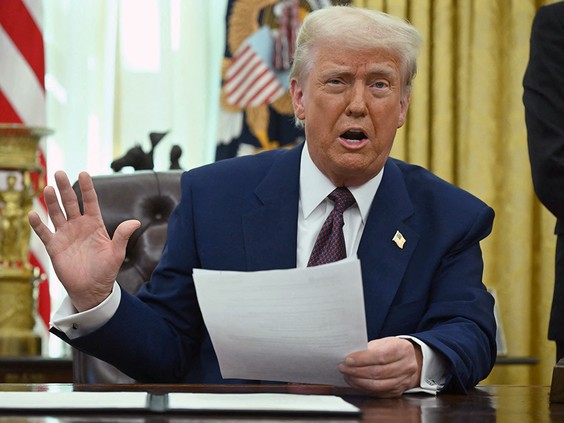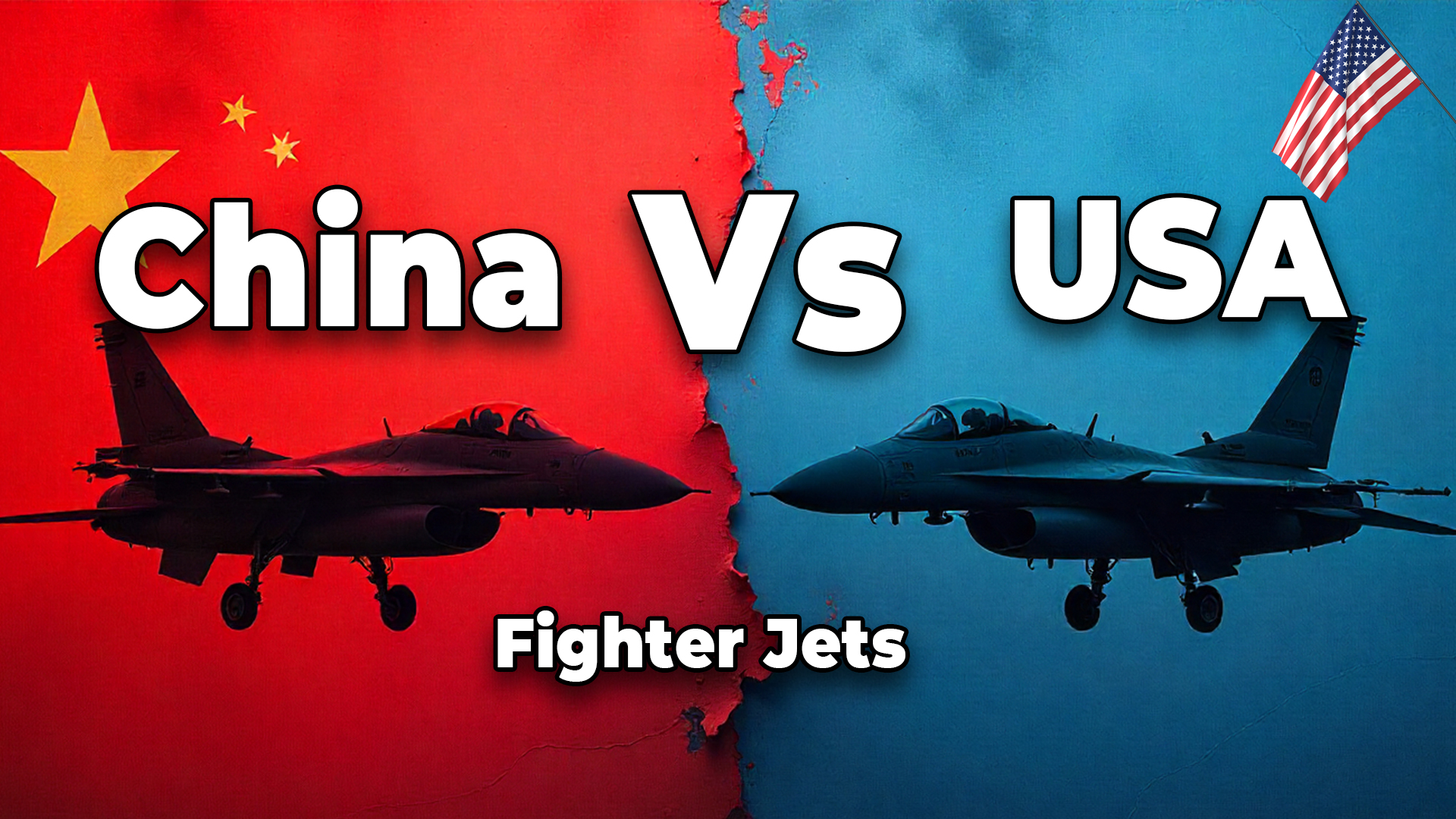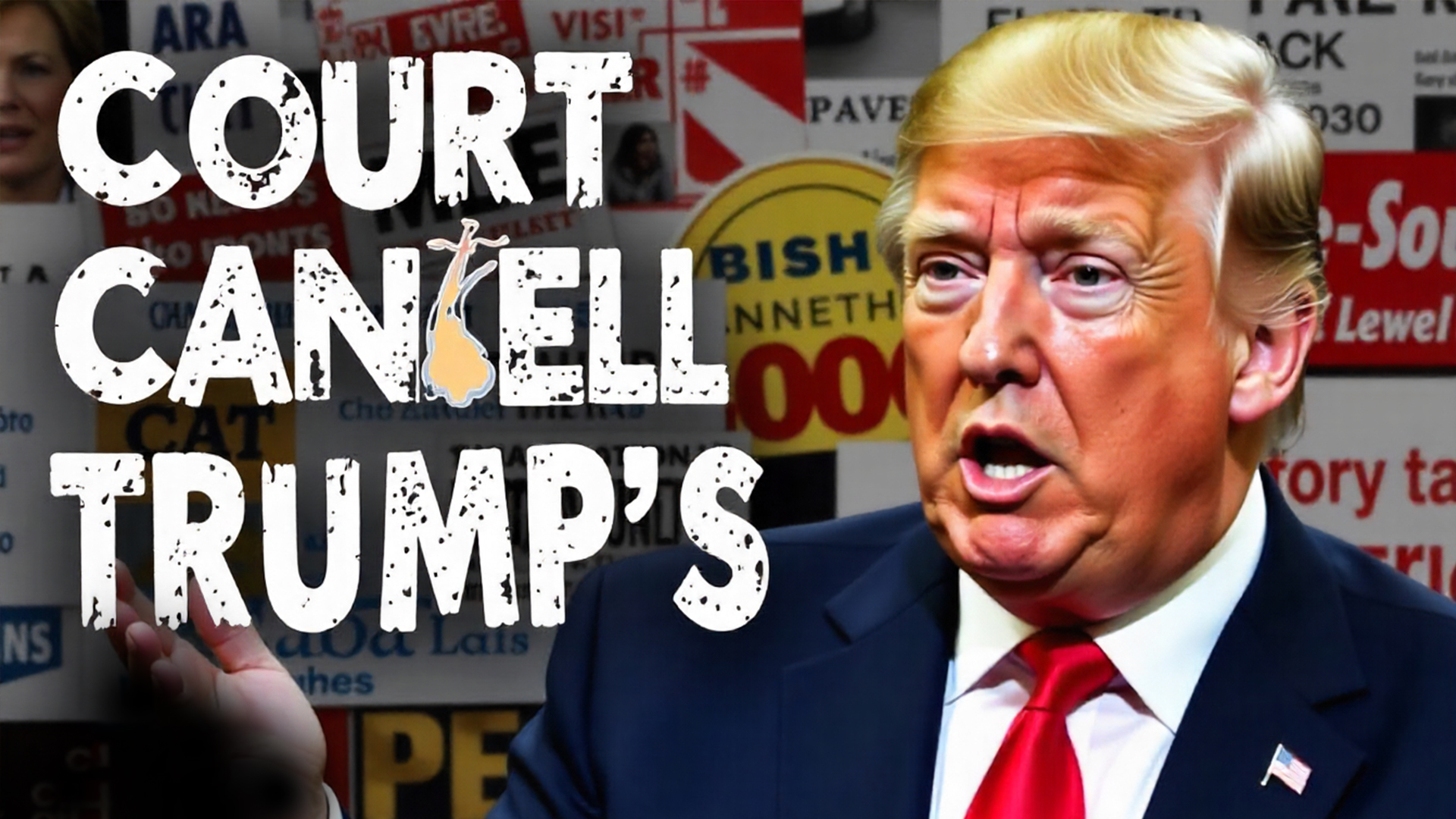The United States and Canada share one of the most significant trade relationships in the world, with bilateral trade reaching nearly $900 billion in 2024. Canada has long been America’s largest foreign supplier of crude oil, contributing to over 60% of U.S. oil imports, and is also a major exporter of lumber, minerals, natural gas, and agricultural products to the U.S. at prices far lower than global markets.
Despite this deeply intertwined economic partnership, President Donald Trump has imposed sweeping tariffs on Canadian exports, triggering one of the most severe trade wars in modern history. While the official reason cited by the Trump administration is fentanyl trafficking through Canada, the facts tell a different story. Why would Trump go after such a crucial ally and trading partner? The answer could be far more strategic, political, and even territorial than most people realize.
The Dilemma of Trump’s Deportation Plan: 13 Million at Stake!
The Fentanyl Excuse: A Convenient Justification for Economic Warfare
From the beginning of his 2024 campaign, Trump vowed to crack down on the fentanyl crisis, blaming both Mexico and Canada for allowing illicit drugs to flow into the U.S. In early 2025, he announced that Canada had failed to stop the movement of fentanyl across the northern border and used this as justification to impose massive tariffs on Canadian exports.
However, data from both U.S. Customs and Border Protection (CBP) and the Canadian Border Services Agency (CBSA) shows that only a tiny fraction of fentanyl enters the U.S. from Canada. The vast majority—over 90%—comes through the southern border from Mexico.
Furthermore, Canada has significantly ramped up security efforts in recent weeks, deploying new scanning technologies, increasing border patrols, and tightening control over pharmaceutical shipments. Yet, despite these measures, Trump remains firm on maintaining the tariffs.
This raises a crucial question: If fentanyl smuggling is decreasing at the northern border, why is Canada still facing these harsh economic penalties? The answer lies beyond drug policy—it’s about power, control, and economic leverage.
Trump’s True Motives: Economic Stranglehold or Political Strategy?
Trade between the U.S. and Canada is highly asymmetrical—while the U.S. is Canada’s largest export market, accounting for 75% of Canadian exports, the U.S. only relies on Canada for about 12-15% of its imports. This gives Washington enormous leverage over Ottawa.
By imposing crippling tariffs on key Canadian exports like oil, lumber, and aluminum, Trump is placing extreme financial pressure on Canada, knowing full well that its economy is deeply tied to the U.S. market. If Canada cannot sell its goods to the U.S., it faces economic turmoil, job losses, and potential recession.
But why would Trump want to economically weaken Canada? The answer might be found in his repeated references to Canada as the ’51st state’.
The Bigger Picture: Does Trump Want to Absorb Canada?
Over the years, Trump has openly mused about Canada becoming part of the U.S., often mocking its independence and dismissing its sovereignty. He has claimed that Canada is too reliant on America to survive on its own and has suggested that it would benefit from joining the U.S. economically and politically.
Now, with the trade war in full swing, Trump may be testing how far he can push Canada before it breaks. By strangling Canada’s access to U.S. markets, he is forcing Ottawa into a difficult position—either accept economic decline or seek drastic alternatives.
Some analysts believe this is part of a broader strategy to force Canada into submission, making it desperate enough to negotiate new terms—perhaps even considering deeper integration with the U.S.
What makes Canada so valuable? It’s not just the economy—it’s the vast land, the natural resources, and strategic geopolitical advantages.
The Resource Grab: Why the U.S. Wants Canada’s Oil and Uranium
One of Canada’s most valuable assets is its natural resources, particularly crude oil and uranium. Canada is home to the third-largest oil reserves in the world, and it sells crude to the U.S. at prices significantly lower than the international market.
Similarly, Canada possesses large deposits of uranium, a critical element in nuclear energy and defense systems. The U.S. has long relied on Canada for stable uranium supplies, and control over these resources would greatly benefit America’s military and energy sectors.
If Canada were fully integrated into the U.S. economy—or even politically absorbed—it would secure America’s dominance over these crucial resources. No other country would be able to challenge the U.S. in energy, defense, or geopolitical power.

President Donald Trump announces that he will impose reciprocal tariffs on U.S. trading partners, in Washington, DC, on Feb. 13, 2025. Photo by ANDREW CABALLERO-REYNOLDS/AFP via Getty Images
The Fallout: Can Canada Resist Trump’s Economic Offensive?
So, what happens next? Will Canada surrender to Trump’s pressure, or will it fight back?
If Canada chooses to resist, it will need to diversify its trade relationships by strengthening ties with China, the European Union, and other global markets. However, shifting away from U.S. trade dependence would take years and could lead to economic hardships in the short term.
On the other hand, if Canada negotiates with Trump, it may face even more demands—perhaps even conversations about closer economic or political integration. The idea of a “United North America” has long been dismissed as fiction, but with Trump in power, it might not be so far-fetched.
Final Thoughts: Is This a Trade War or an Economic Takeover?
Trump’s tariffs don’t make economic sense—they hurt American businesses that rely on Canadian imports and raise costs for U.S. consumers. So, if this isn’t about trade, what is it really about?
The deeper issue might be a calculated move to weaken Canada’s economy, exert U.S. dominance, and gain control over its resources. If Canada can’t sustain itself without the U.S., it may be forced into a future where its sovereignty is at stake.
Is this an economic war, or is it something much bigger?
Let us know your thoughts in the comments below!






One thought on “US-Canada Trade War: The Real Reason Trump is Targeting Canada”